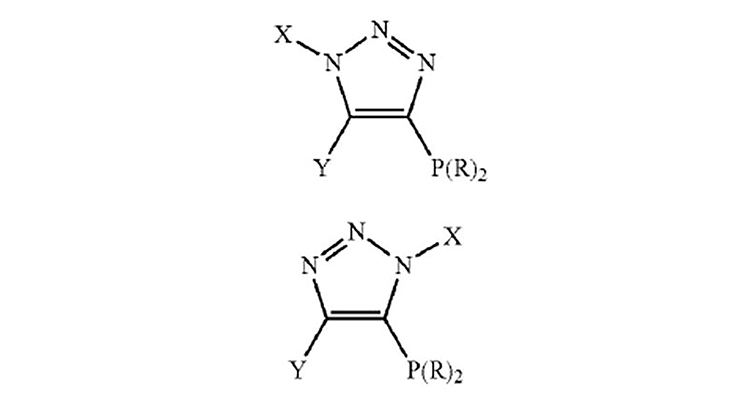Clickphosphines for Metal-Catalyzed Coupling Reactions
ID# 2005-3066
Technology Summary
Novel triazole-based monophosphines can function as ligands for use in metal-catalyzed coupling reactions. These monophosphines are particularly useful for complexing with Pd, Ni, Mn, Fe, Rh, or Cu to catalyzed C–C, C–N, C–O bond coupling reactions as well as forming complexes with Rh, Ru, Ir and Pd for use in hydrogenation reactions. The monophosphines of the present invention are prepared using “click chemistry” and are collectively referred to as “clickphosphines.” This process makes possible the design of a series of ligands with facile synthesis and easy diversification.
Application & Market Utility
Transition metal catalyzed cross-coupling reactions are used in organic synthesis for the connection of two fragments via carbon-carbon bonds and carbon-heteroatom bonds. The most useful ligands employed in these processes stabilize the transition metal center and direct the selectivity to a desired transformation. There is a demand for ligands that affect bond formation in predictable ways in the fine chemical and pharmaceutical industries. Difficulties synthesizing these ligands are resolved by use of novel clickphosphines. Protected by the 7,709,655 patent.
Next Steps
Seeking licensing opportunities.

